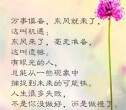
春节的由来英语作文70词【一】
1。hereby
该词意为by means of , by reason of this, by this agreement,“特此”,“因此”,“兹”,“在此”。此词常用作法律、经贸文件、合同、协议书等正式文件的开头语,在合同条款中需特别强调时也可用,表示当事人借此合约,要宣示某种具有法律效力的“意思表示”,如保证、同意、放弃权利等,一般放于主语后,紧邻主语。如:The Company hereby covenants and warrants that…… 意为:By this agreement the Company covenants and warrants that……即:公司在此保证……再如:Both parties hereby agree that……意为:By this agreement both parties agree that……即:双方当事人在此同意……
2。hereof
该词意为:of this agreement,“关于此点”;“在本文件中”,表示上文已提及的“本合同的、本文件的……”,一般置于要修饰的名词的后面,与之紧邻。如:to take effect on the date hereof 意为:to take effect on the date of this agreement 即:于本合约之日期生效。再如:the headings of the sections hereof 意为:the headings of the sections of this agreement 即:本合约各条款之标题。
3。hereto
该词意为:to this agreement,“至此”,“在此”,表示上文已提及的“本合同的……本文件的……”,一般置于要修饰的`名词的后面,与之紧邻。如:both parties hereto 意为both parties to this agreement,即本合约之当事人双方;items specified in Attachment I and hereto 意为:items specified in Attachment I to this agreement 即:本合约之附件I所列之各项。
4。herein
该词意为:in this agreement,“此中”,“于此”,表示上文已提及的“本合同(中)的……,本法(中)的……”等,一般置于所修饰词后,紧邻所修饰词。如:to file a suit in the court agreed to herein 意为:to file a suit in the court agreed to in this agreement 即:向当事人于本合约中同意管辖的法院提起诉讼;再如:to follow the terms and conditions herein 意为:to follow the terms and conditions in this agreement,即:遵守本合约所规定的条件。
5。hereinafter
该词意为:later in the same Contract,“以下”,“在下文”,一般与to be referred to as, referred to as, called 等词组连用,以避免重复。
6。hereunder
该词意为:under this agreement,“在本合约内”、“依据本合约”。如:obligations hereunder,意为obligations under this agreement,即“本合约内的义务”。再如:rights granted hereunder,意为rights granted under this agreement,即“依本合约所赋予的权利”。
春节的由来英语作文70词【二】
小年,即每年农历腊月廿三或廿四,是祭祀灶王爷的节日。它是整个春节庆祝活动的开始和伏笔,其主要活动有两项:扫年和祭灶。除此之外,还有吃灶糖的习俗,有的地方还要吃火烧、吃糖糕、油饼,喝豆腐汤。
早在宋朝的时候,就有腊月二十四过小年的记载,但那个时候小年是不分两天的.。所以腊月二十四的小年习俗历史是更悠久的。
那么什么时候发生了变化呢?这就要到清朝了。清朝的皇帝从雍正年间开始,每年腊月二十三在坤宁宫祀神,为了节省开支,皇帝顺便把灶王爷也拜了。以后王族、贝勒随之效仿,于腊月二十三祭灶,自此开始有了官民在不同日子过小年的分野。
春节的由来英语作文70词【三】
小年是民间祭灶的日子。“柴米油盐酱醋茶”,“柴”是民间生活中的第一位。旧时每年小年,家家户户都要“请”回来一帧新的灶王像,来代替旧的:约莫16开纸张大小,上部绘一座宫殿,书“广德宫”,中间为神像,像下有五个小孩捧铜钱、元宝,寓意“五子登科”“招财进宝”,左右联为“上天奏好事,下地降吉祥”。
祭灶神的贡品不需鸡鸭鱼肉,更不需牛羊三牲,只需祭上一些“糖瓜”, 让灶神尝点儿甜头,在玉皇大帝面前多美言几句。还给灶王爷的坐骑准备清水、料豆、秣草等。另外,大年三十的晚上,灶王还要与诸神来人间过年,那天还得有“接灶”、“接神”的仪式。
春节的由来英语作文70词【四】
农历十二月二十三和二十四,是中国民间传统的祭灶日,又称“小年”。传说灶王爷原为平民张生,娶妻之后终日花天酒地,败尽家业沦落到上街行乞。一天,他乞讨到了前妻郭丁香家,羞愧难当,一头钻到灶锅底下烧了。
玉帝知道以后,认为张生能回心转意,还没坏到底,既然在了锅底,就把他封为灶王,每年腊月二十三、二十四上天汇报,大年三十再回到灶底。老百姓觉得灶王一定要敬重,因为他要上天汇报。于是,民间就有了腊月二十三、二十四的祭灶“小年”,祈求来年平安和财运。
宋代的范成大在他的《祭灶诗》中说:“古传腊月二十四,灶君朝天欲言事。云车风马小留连,家有杯盘丰典祀。猪头烂热双鱼鲜,豆沙甘松粉饵团。男儿酌献女儿避,酹酒烧钱灶君喜。婢子斗争君莫闻,猫犬角秽君莫嗔;送君醉饱登天门,杓长杓短勿复云,乞取利市归来分。”可以说,这首诗非常形象地说明了古代中国人民有关祭灶的风俗习惯。当然,这只是民间的传说而已,是不足为信的。
春节的由来英语作文70词【五】
腊月二十三,又称“小年”,是民间祭灶的日子。据说,每年腊月二十三,灶王爷都要上天向玉皇大帝禀报这家人的善恶,让玉皇大帝赏罚。因此送灶时,人们在灶王像前的桌案上供放糖禁、清水、料豆、秣草,其中后三样是为灶王升天的坐骑备料。祭灶时,还要把关东糖用火融化,涂在在灶王爷的嘴上。这样,他就不能在玉帝那里讲坏话了。民间有“男不拜月,女不祭灶”的习俗,因此祭灶王爷,只限于男子。
另外,大年三十的晚上,灶王还要与诸神来人间过年,那天还得有“接灶”、“接神”的仪式。等到家家户户烧轿马、洒酒三杯、送走灶神以后,便轮到祭拜祖宗。
春节的由来英语作文70词【六】
The Spring Festival, Chinese New Year,is the most important festival for all of us. All family members get together on New Year'Eve to have a big meal.At the same time, everyone celebrates to each other.At about 12 o'clock,some parents and children light crackers.The whole sky is lighted brightly. We may watch the fireworks excitedly.How busy it is!
On the first early moring of one year, many senior citizen get up early and they stick the reversed Fu or hang some couplets on the front door. Some house's windows are sticked on red paper cutlings.
The Chinese New Year lasts fifteen days. So during the fifteen days, we always visit our relatives from door to door. At that time, children are the happiest because they can get many red packets form their parents,grandparents, uncles, aunts and so on. The last day of the Chinese New Year is another festival. It names the Lantern Festival.
So the Chinese New Year comes to the end.
















